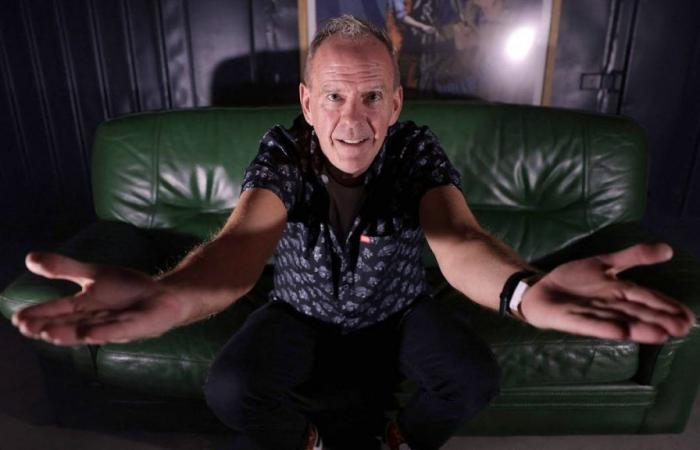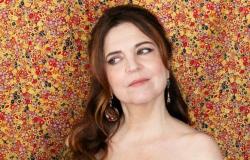Quentin Leo Cook, aka Fatboy Slim, continues to make people dance at 61 years old.
AFP
“My love of music involves sharing it and that’s what motivates me”: at 61, the famous English DJ Fatboy Slim continues to make people dance in nightclubs and festivals around the world.
Known worldwide since the end of the 90s with the hits “Praise You” and “Right Here Right Now”, the DJ-star confided that he was “having more fun than ever” behind the decks, on the sidelines of his performance at the Mecanik Paradize festival. in Toulouse (south-west), surrounded by the articulated giants of the La Machine company.
QUESTION: You started your career as Fatboy Slim in 1996. Have you ever mixed surrounded by mechanical machines?
ANSWER: “Actually, I feel at home here. I have never done a concert surrounded by mechanical machines but I played in some at the Glastonbury festival (in England). This year I played in a dragonfly, so I like the machines.”
Q: Are you still having as much fun as you did at the start of your career?
A: “I’m having more fun than ever DJing. I’ve kind of lost the desire to make records, produce and remix. But the job of DJ is wonderful because I love music and I love sharing it. I realized during the pandemic, when I couldn’t play for 14 months, how much it meant to me.
Q: You don’t see yourself stopping?
A: If people still want me, I think I’ll do this for the rest of my life. I saw during the pandemic what retirement looks like, and I didn’t like it, it’s not for me. Some people, when they hear a song they like, put it in their headphones and listen to it on repeat. My love of music involves sharing it and that’s what motivates me.”
Q: How have electronic music and DJing evolved since the 90s?
A: “Dance music has exploded over the last twenty years. On the one hand, it’s great because people like it. But before, there was something special about going to a nightclub to hear a DJ playing records you’d never heard, that you couldn’t hear on the radio. There was a connection around it, a love, but part of that love has disappeared because young people don’t really understand it anymore. (In a club, editor’s note) It’s the music that unites, that brings people together, I wish it wasn’t so much about VIP tables and overpriced vodka.”
Q: Has the audience changed since your first concerts?
A: “It’s strange but not really. There are also people who, like me, grew up with this music. But when we look ahead, it’s always young people between 18 and 22 years old, young adults who are taking advantage of their freedom. It’s always the same soap opera, I see them falling in love, getting started with alcohol…”
Q: You talked about how difficult the Covid-19 period was for you. Was this forced retirement the most difficult moment of your career?
A: No, it was probably getting sober. I had problems with alcohol and had to step away from the stage. Then I had to learn how to do my job sober. I had never done it soberly in my life and so I had to reinvent my approach to DJing. It was difficult, but it was worth it. Fifteen years later, I’m still alive and still having fun.”
Q: You released a single called “Role Model” this year. Are there any other songs coming?
A: “Today, I am mainly a DJ. I have a new one coming out called “Bus Stop Please,” but for me it’s a hobby now. My work, my life and my passion is DJ.”
(afp)






